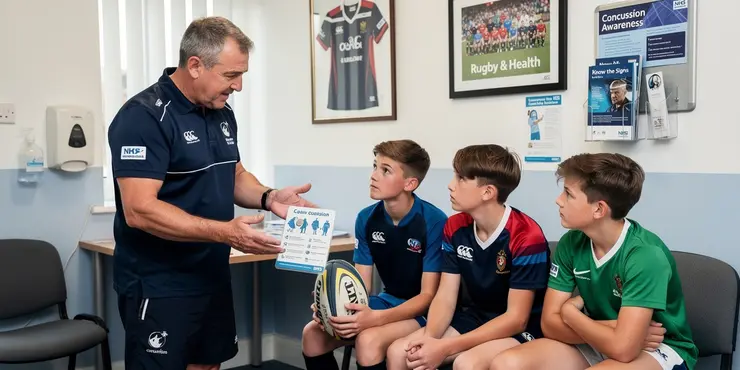
Find Help
More Items From Ergsy search
-
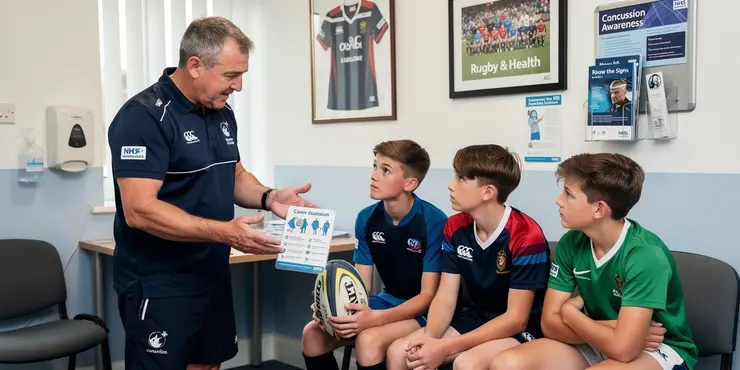
Is there a difference in concussion rates between amateur and professional rugby?
Relevance: 100%
-
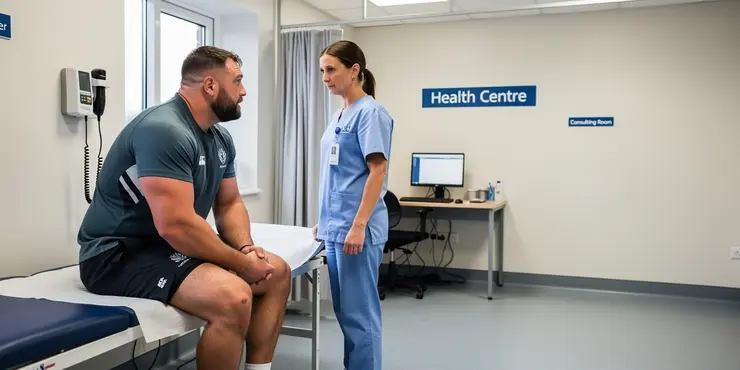
Are Concussions common in Rugby?
Relevance: 79%
-
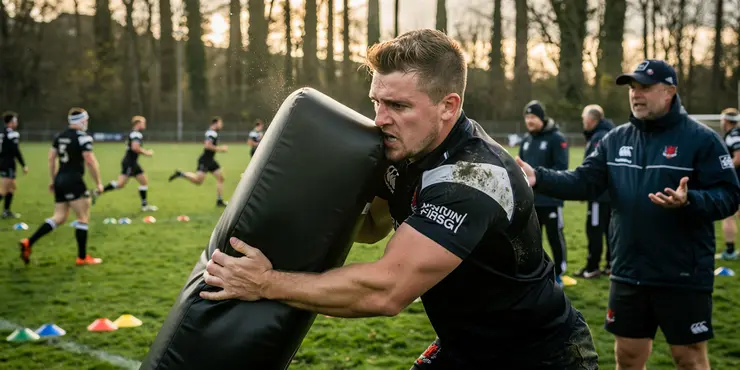
What causes concussions in rugby?
Relevance: 65%
-
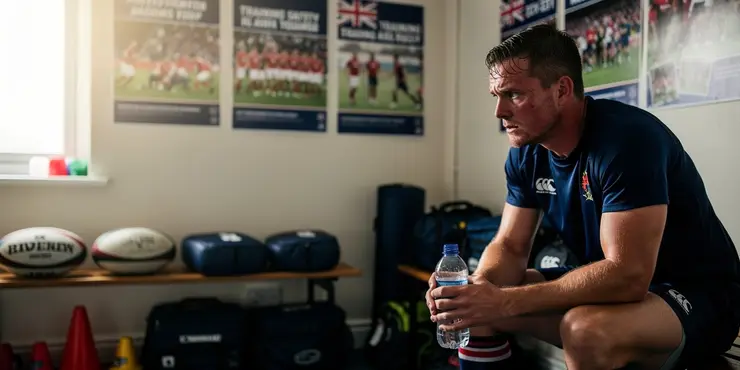
Is there a protocol for managing concussions in rugby?
Relevance: 64%
-
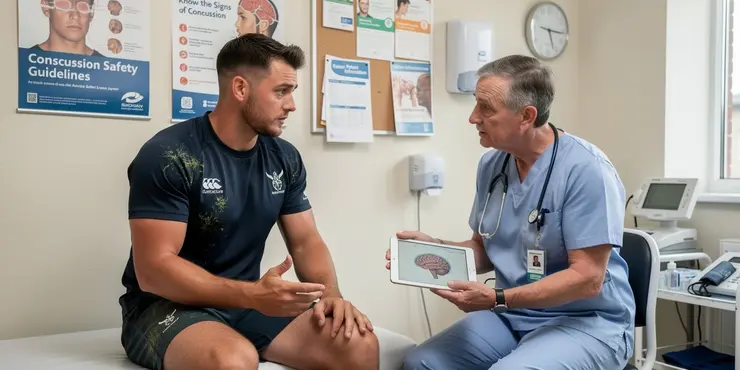
Are helmets required in rugby to prevent concussions?
Relevance: 63%
-
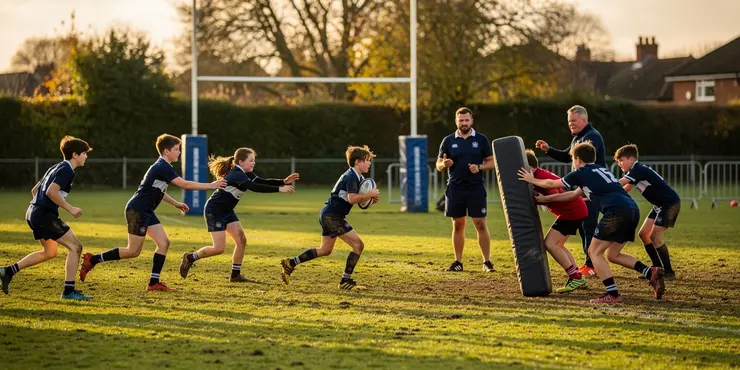
What age groups are most at risk for concussions in rugby?
Relevance: 61%
-

How do concussions impact long-term health in rugby players?
Relevance: 61%
-
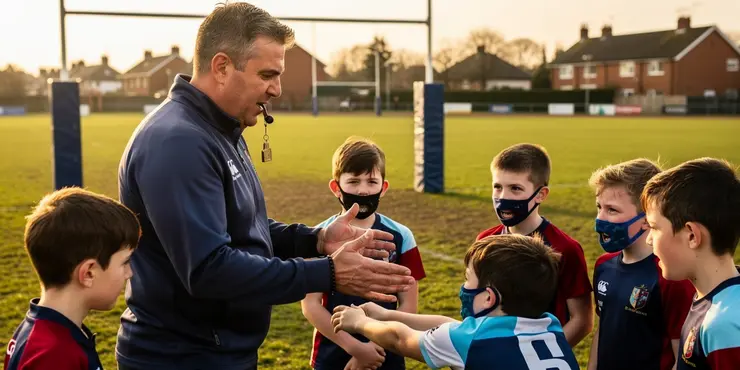
How can concussions be prevented in rugby?
Relevance: 60%
-
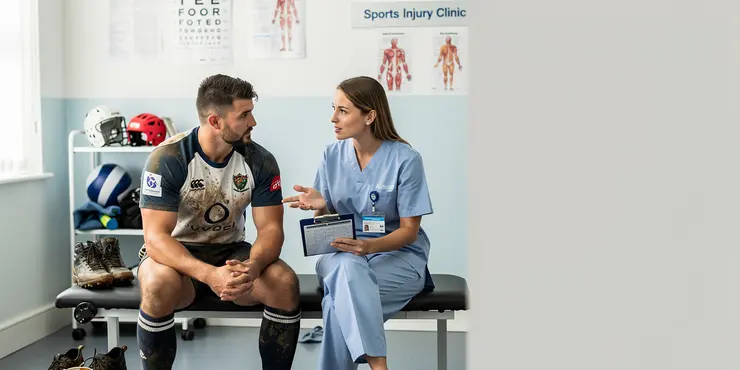
What support is available for rugby players who suffer concussions?
Relevance: 56%
-

Is there any way to prevent concussions?
Relevance: 34%
-
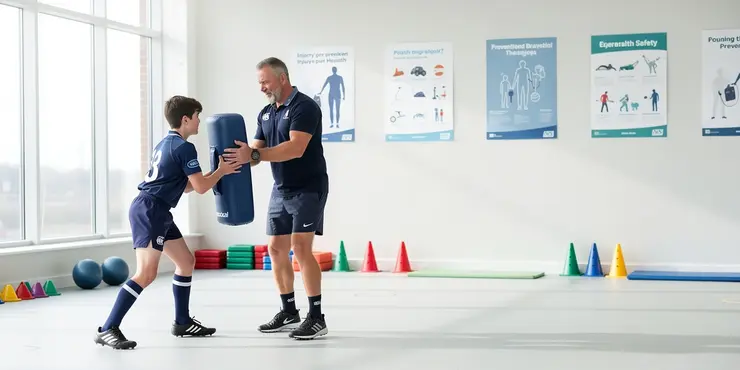
How can concussions be prevented?
Relevance: 32%
-
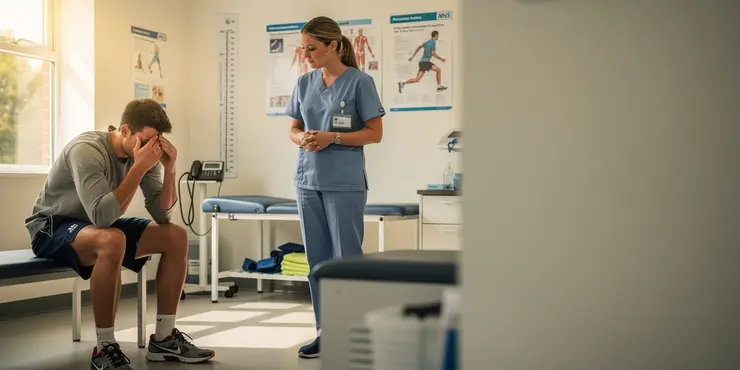
What is Concussion?
Relevance: 32%
-
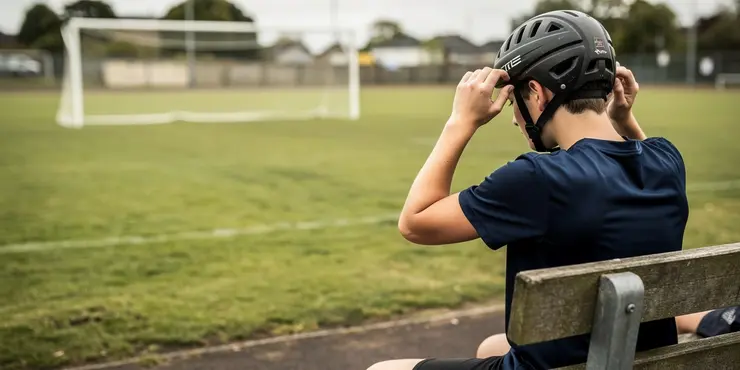
How can concussions be prevented?
Relevance: 30%
-
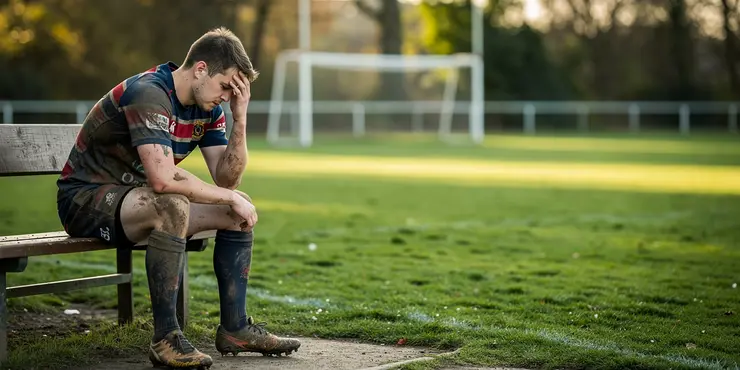
Can playing sports increase the risk of a concussion?
Relevance: 30%
-
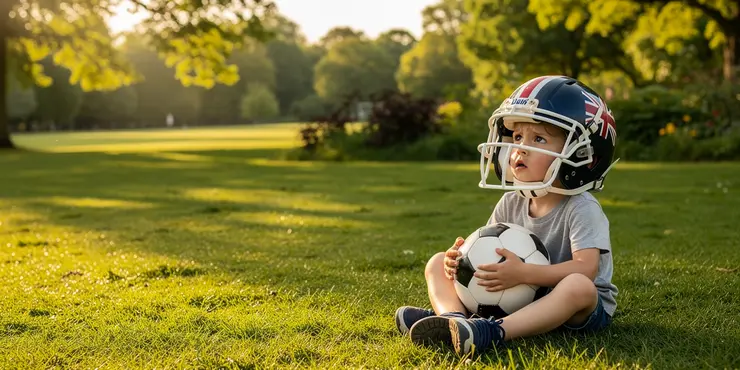
Are children more susceptible to concussions than adults?
Relevance: 28%
-

What role do schools play in managing concussions?
Relevance: 27%
-
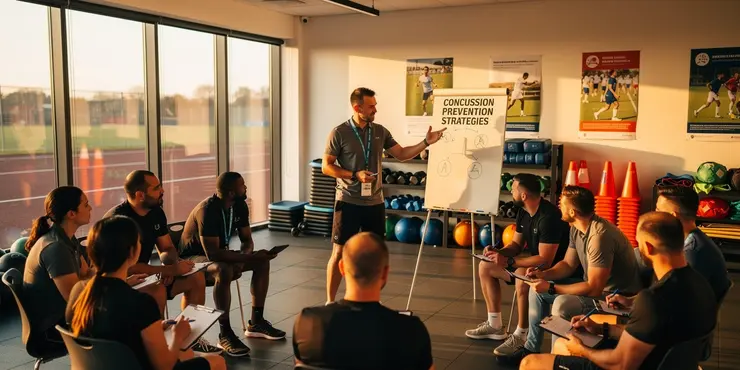
Is training available for coaches to help prevent concussions?
Relevance: 26%
-

How is a concussion diagnosed?
Relevance: 22%
-

Is it safe to sleep after a concussion?
Relevance: 22%
-

How is a concussion diagnosed?
Relevance: 21%
-

Is it safe to sleep after a concussion?
Relevance: 21%
-

Is headache a symptom of a concussion?
Relevance: 21%
-

Can a concussion cause memory problems?
Relevance: 20%
-

What are common symptoms of a concussion?
Relevance: 20%
-

Can concussions lead to mental health issues?
Relevance: 19%
-
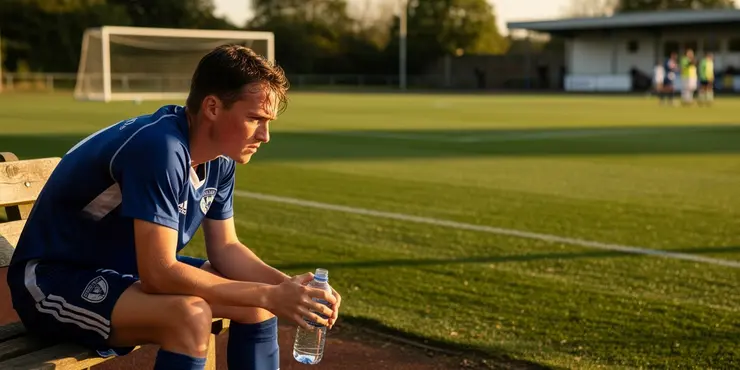
Can players return to play on the same day after a suspected concussion?
Relevance: 19%
-

When is it safe to return to normal activities after a concussion?
Relevance: 19%
-
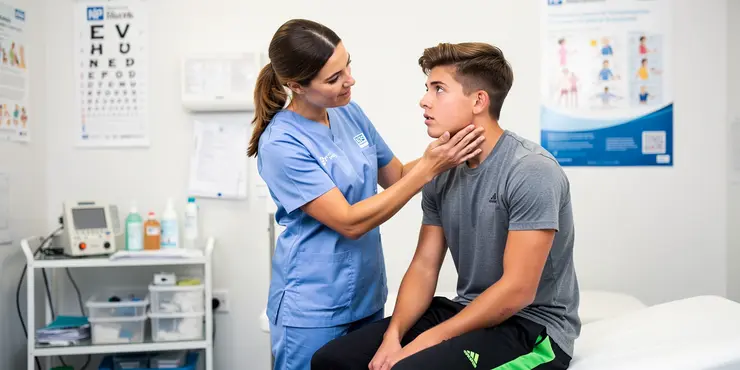
Can concussions occur without a direct blow to the head?
Relevance: 19%
-

When is it safe to return to normal activities after a concussion?
Relevance: 18%
-

What immediate steps should be taken if someone has a concussion?
Relevance: 18%
-

Should people with a concussion avoid screens and technology?
Relevance: 18%
-

What is the impact of a professional negligence claim on a professional's career?
Relevance: 12%
-

Do I need professional advice for reporting and paying CGT?
Relevance: 12%
-

What is professional negligence?
Relevance: 12%
-

Why are vaccination rates declining in the UK?
Relevance: 12%
-

What are the success rates of Paillon treatment?
Relevance: 11%
-

Are there different rates of Stamp Duty in the UK?
Relevance: 11%
-

Are there professional advisors for inheritance tax planning?
Relevance: 11%
-

Is a mistake always considered professional negligence?
Relevance: 11%
-

Are professionals insured against negligence claims?
Relevance: 10%
Concussion Rates in Amateur vs. Professional Rugby
Introduction
Rugby is a high-impact sport that poses a risk of concussions to its players, regardless of skill level. However, the frequency and nature of these concussions can differ between amateur and professional levels.Concussion Rate Influences
Several factors influence concussion rates in rugby, including the level of physicality, types of tackles, and player conditioning. Professional players generally face more intense and frequent impacts due to the higher level of play and physical demands.Professional Rugby Concussion Rates
In professional rugby, concussion rates tend to be higher due to the faster pace of the game and greater impact forces experienced during tackles and collisions. A study conducted within the English Premiership reported concussion as the most common match injury, demonstrating the substantial risk inherent in professional play.Amateur Rugby Concussion Rates
Conversely, amateur rugby players might experience fewer concussions in competitive matches compared to their professional counterparts. However, they might also be less equipped with advanced safety training and medical resources, potentially affecting their recovery and reporting of concussions.Training and Medical Protocols
Professional clubs typically have stringent medical protocols and extensive training designed to prevent and manage concussions, including immediate medical assessments. Amateur teams might not have access to such comprehensive resources, influencing the reported incidence and treatment of concussions.Conclusion
While professional rugby sees higher concussion rates due to the nature and demands of the game, there is a growing emphasis on player welfare at all levels. Continued research and education are crucial to reducing concussion risks and promoting safer playing environments for both amateur and professional players in the UK.Concussion Rates in Amateur vs. Professional Rugby
Introduction
Rugby is a sport with lots of physical contact. It can cause head injuries, like concussions, for all players. Concussions may happen for both amateur and professional players, but there are differences.Concussion Rate Influences
Many things affect how often concussions happen in rugby. These include how rough the game is, how players tackle each other, and how fit the players are. Professional players often have more intense games because their games are tougher and faster.Professional Rugby Concussion Rates
Professional rugby players have more concussions because their games are quicker and hits are harder. In a study from the English Premiership, concussions were the most common injury during matches. This shows how risky professional rugby can be.Amateur Rugby Concussion Rates
Amateur rugby players might have fewer concussions in their games than professional players. However, they might not have as much safety training or medical help, which can affect how they get better or notice concussions.Training and Medical Protocols
Professional rugby teams have strong rules and training to help prevent and handle concussions. They get quick medical help when needed. Amateur teams might not have as many resources, which can change how they report and treat concussions.Conclusion
Professional rugby has more concussions because of the game's speed and roughness. But both amateur and professional rugby are focusing more on keeping players safe. More studies and learning can help make rugby safer for everyone in the UK.Frequently Asked Questions
What is a concussion?
A concussion is a type of traumatic brain injury caused by a blow to the head or body, shaking of the brain within the skull.
Are concussion rates higher in professional rugby compared to amateur rugby?
Yes, concussion rates tend to be higher in professional rugby due to the increased intensity and physicality of the game at that level.
Why do professional rugby players have higher concussion rates?
Professional players often experience more frequent and forceful impacts due to higher speed, size, and competitiveness in the professional environment.
How are concussions identified in rugby?
Concussions are identified through symptoms such as confusion, headache, and dizziness, and by assessing players using tools like the HIA protocol.
What is the HIA protocol?
The Head Injury Assessment (HIA) protocol is a process used in rugby to determine whether a player has sustained a concussion.
Is there a standard protocol for managing concussions in rugby?
Yes, rugby bodies like World Rugby have protocols to manage concussions, focusing on assessment, treatment, and return to play guidelines.
Do amateur players have access to the same concussion protocols as professionals?
Amateur players might have less immediate access to medical professionals and standardized protocols compared to professional players.
How does the physicality of professional rugby affect concussion rates?
Increased physicality in professional rugby, with players being larger and faster, results in more forceful collisions, raising concussion risk.
What measures are taken to reduce concussion risks in rugby?
Measures include rule changes, better coaching, improved protective gear, and heightened emphasis on proper tackling techniques.
How do rule changes in rugby impact concussion rates?
Changing rules, such as those reducing high tackles, aim to lessen head impacts and lower concussion risk during play.
Has the awareness of concussions in rugby increased?
Yes, there is greater awareness now, with more emphasis on player education, safety protocols, and research on head impacts.
Are there long-term impacts of concussions in rugby?
Concussions can lead to long-term issues like memory problems, depression, and in some cases, chronic traumatic encephalopathy (CTE).
Is there ongoing research into concussion prevention in rugby?
Yes, ongoing research focuses on concussion detection, player safety, and technology to decrease the incidence of head injuries.
How does amateur rugby handle concussions compared to professional levels?
Amateur rugby may have fewer resources, making awareness and education crucial, but still employs similar protocols on a more limited scale.
Is protective gear effective in reducing concussions in rugby?
While mouthguards and padded headgear can reduce some risks, they are not completely effective in preventing concussions.
What is a concussion?
A concussion is when your brain gets hurt. It can happen if you bump your head really hard.
When you have a concussion, your brain might feel funny. You could feel dizzy or have a headache.
If you think you have a concussion, it is important to tell a grown-up or a doctor.
Here are some things that might help:
- Rest a lot
- Stay in a quiet place
- Ask for help if you feel confused
A concussion is a kind of brain hurt. It happens when you get hit on the head or body. The brain moves around inside the head and gets hurt.
Do more professional rugby players get concussions than amateur rugby players?
This means: Do people who play rugby for their job get hurt in the head more than people who play rugby for fun?
To help understand, you can:
- Ask someone to explain it to you.
- Watch a video about rugby and concussions.
- Look at pictures about rugby safety.
Yes, there are more concussions in professional rugby because the game is more intense and physical.
Why do rugby players get more head injuries?
Professional players get hit more often and harder. This is because they are bigger, faster, and play in tough games.
How do you know if someone has a concussion in rugby?
Rugby players might hit their heads when they play. This can hurt their brains. This is called a concussion.
It is important to know if a player has a concussion. Here are some signs:
- The player feels dizzy or confused.
- They have a headache.
- They feel sick or want to vomit.
- They have trouble seeing clearly.
- They can't remember things well.
If a player shows these signs, they should stop playing right away and see a doctor. Use a simple checklist to help notice these signs quickly
Concussions happen when you hurt your head. You might feel confused, get a headache, or feel dizzy. Doctors use special checks to see if someone has a concussion. One tool they use is called the HIA protocol.
What is the HIA protocol?
HIA protocol is a set of rules that help people stay healthy.
This helps to check how activities affect health.
If something is not good for health, the HIA protocol helps change it.
Tools to help understand:
- Use pictures to show ideas.
- Ask someone to explain hard words.
The Head Injury Check-Up in rugby is used to see if a player has a concussion. A concussion is when you hit your head and might feel dizzy or confused.
Is there a set way to handle head bumps in rugby?
Yes, the people who look after rugby have rules to help with head injuries. They check if a player is hurt, take care of them, and have steps for when they can play again.
Do amateur players have the same help for head injuries as professional players?
When someone plays sports and hits their head, they might have a head injury. This is called a concussion. Professional players have special people who help when this happens.
But what about kids or adults who play just for fun? Do they get the same help?
If you play sports for fun, it's important to tell an adult or coach if you hit your head. They can help you feel better and tell you what to do next.
Some things that help include:
- Resting and not playing for a while.
- Talking to a doctor or nurse.
- Wearing safety gear like helmets.
Always remember, it's okay to ask for help if you hit your head.
People who play for fun might not be able to see doctors as quickly as professional players. They might not have the same rules and steps to follow when they get hurt.
How does playing rugby affect head injuries?
In professional rugby, players are bigger and faster than before. They often bump into each other very hard. This can make head injuries happen more often.
How do people make rugby safer and stop head injuries?
We can make sports safer by doing these things:
- Change the rules to keep players safe.
- Have better coaches who teach safety.
- Use stronger helmets and pads.
- Teach players how to tackle safely.
We can also use helpful tools like videos that show safety tips or apps that remind coaches and players to stay safe.
Do new rugby rules change how often players get hurt in the head?
Rugby is a game where players can get hurt, especially in the head. This is called a concussion.
Sometimes, the rules of rugby are changed to keep players safe. We want to know if these new rules help stop head injuries.
If you have trouble reading, you can use these tips:
- Ask someone to read along with you.
- Listen to an audio version if you find it available.
- Take breaks if you start to feel tired.
New rules about playing sports, like stopping high tackles, help keep players safe. These rules can help reduce hits to the head and prevent concussions.
Do people know more about head injuries in rugby now?
Yes, people know more about it now. There is more teaching for players, rules to keep them safe, and studies on head hits.
Can getting a concussion in rugby affect you later on?
Sometimes, if you hit your head playing rugby, it can cause a concussion, which is like a hurt inside your head. This can make you feel dizzy, confused, or sleepy.
It is important to tell an adult, like a coach or a parent, if you think you have a concussion. They can help you get medical attention.
For some people, concussions can cause problems that last a long time. This can include trouble remembering things or having headaches often.
Make sure to wear protective gear, like a helmet, when playing rugby. This can help protect your head.
Try using tools that help you remember things, like making a list or using a calendar. These can be helpful if you're having trouble remembering because of a concussion.
A concussion is when your head gets a hard bump. This can cause problems later, like:
- Forgetting things (memory troubles)
- Feeling very sad (depression)
- Other brain problems, like CTE, that can make you feel unwell for a long time
If you or someone you know has a concussion, it's important to get help. You can use these tools:
- TALK to a doctor or nurse
- REST your brain by taking breaks from screens and loud places
- Keep a DIARY to write down how you feel each day
Are people studying how to stop concussions in rugby?
Yes, people are studying how to stop concussions in rugby. Concussions are when you hurt your head, and rugby is a sport with lots of physical contact.
Some ways to help understand this are:
- Use pictures to show how concussions happen.
- Watch videos that explain rugby safety.
- Ask someone to read with you and help explain the ideas.
Yes, people are studying how to find concussions, keep players safe, and use technology to help protect their heads.
What happens when a non-professional rugby player gets a concussion?
If you get a concussion playing rugby for fun, the rules for taking care of you might be different from when the big professionals play.
Here are some ways they might help:
- Rest: Take a break from playing so your head can heal.
- Doctor's Check: See a doctor to make sure you are okay.
- Follow the Guidelines: Follow rules that help keep you safe.
Using a simple checklist or talking to someone who knows a lot about concussions can help you understand what to do.
In amateur rugby, there is not as much money or help. This is why it is important for people to know what to do and learn about it. They try to do things the same way as professional rugby, but on a smaller level.
Does wearing safety gear help stop head injuries in rugby?
Wearing mouthguards and soft helmets can help keep you safer, but they might not stop all head injuries.
Useful Links
This website offers general information and is not a substitute for professional advice.
Always seek guidance from qualified professionals.
If you have any medical concerns or need urgent help, contact a healthcare professional or emergency services immediately.
Some of this content was generated with AI assistance. We’ve done our best to keep it accurate, helpful, and human-friendly.
- Ergsy carfully checks the information in the videos we provide here.
- Videos shown by Youtube after a video has completed, have NOT been reviewed by ERGSY.
- To view, click the arrow in centre of video.
- Most of the videos you find here will have subtitles and/or closed captions available.
- You may need to turn these on, and choose your preferred language.
- Go to the video you'd like to watch.
- If closed captions (CC) are available, settings will be visible on the bottom right of the video player.
- To turn on Captions, click settings .
- To turn off Captions, click settings again.
More Items From Ergsy search
-

Is there a difference in concussion rates between amateur and professional rugby?
Relevance: 100%
-

Are Concussions common in Rugby?
Relevance: 79%
-

What causes concussions in rugby?
Relevance: 65%
-

Is there a protocol for managing concussions in rugby?
Relevance: 64%
-

Are helmets required in rugby to prevent concussions?
Relevance: 63%
-

What age groups are most at risk for concussions in rugby?
Relevance: 61%
-

How do concussions impact long-term health in rugby players?
Relevance: 61%
-

How can concussions be prevented in rugby?
Relevance: 60%
-

What support is available for rugby players who suffer concussions?
Relevance: 56%
-

Is there any way to prevent concussions?
Relevance: 34%
-

How can concussions be prevented?
Relevance: 32%
-

What is Concussion?
Relevance: 32%
-

How can concussions be prevented?
Relevance: 30%
-

Can playing sports increase the risk of a concussion?
Relevance: 30%
-

Are children more susceptible to concussions than adults?
Relevance: 28%
-

What role do schools play in managing concussions?
Relevance: 27%
-

Is training available for coaches to help prevent concussions?
Relevance: 26%
-

How is a concussion diagnosed?
Relevance: 22%
-

Is it safe to sleep after a concussion?
Relevance: 22%
-

How is a concussion diagnosed?
Relevance: 21%
-

Is it safe to sleep after a concussion?
Relevance: 21%
-

Is headache a symptom of a concussion?
Relevance: 21%
-

Can a concussion cause memory problems?
Relevance: 20%
-

What are common symptoms of a concussion?
Relevance: 20%
-

Can concussions lead to mental health issues?
Relevance: 19%
-

Can players return to play on the same day after a suspected concussion?
Relevance: 19%
-

When is it safe to return to normal activities after a concussion?
Relevance: 19%
-

Can concussions occur without a direct blow to the head?
Relevance: 19%
-

When is it safe to return to normal activities after a concussion?
Relevance: 18%
-

What immediate steps should be taken if someone has a concussion?
Relevance: 18%
-

Should people with a concussion avoid screens and technology?
Relevance: 18%
-

What is the impact of a professional negligence claim on a professional's career?
Relevance: 12%
-

Do I need professional advice for reporting and paying CGT?
Relevance: 12%
-

What is professional negligence?
Relevance: 12%
-

Why are vaccination rates declining in the UK?
Relevance: 12%
-

What are the success rates of Paillon treatment?
Relevance: 11%
-

Are there different rates of Stamp Duty in the UK?
Relevance: 11%
-

Are there professional advisors for inheritance tax planning?
Relevance: 11%
-

Is a mistake always considered professional negligence?
Relevance: 11%
-

Are professionals insured against negligence claims?
Relevance: 10%


